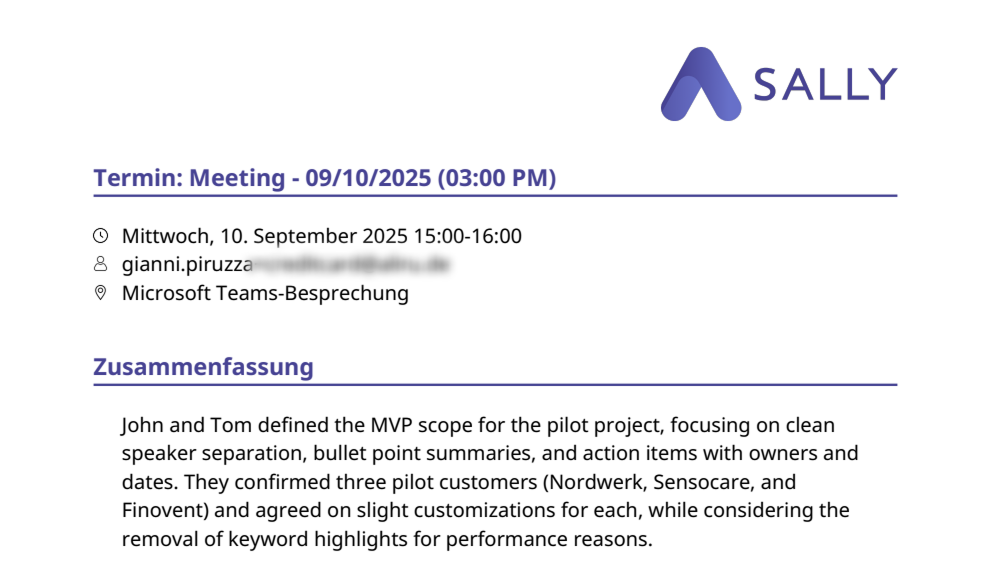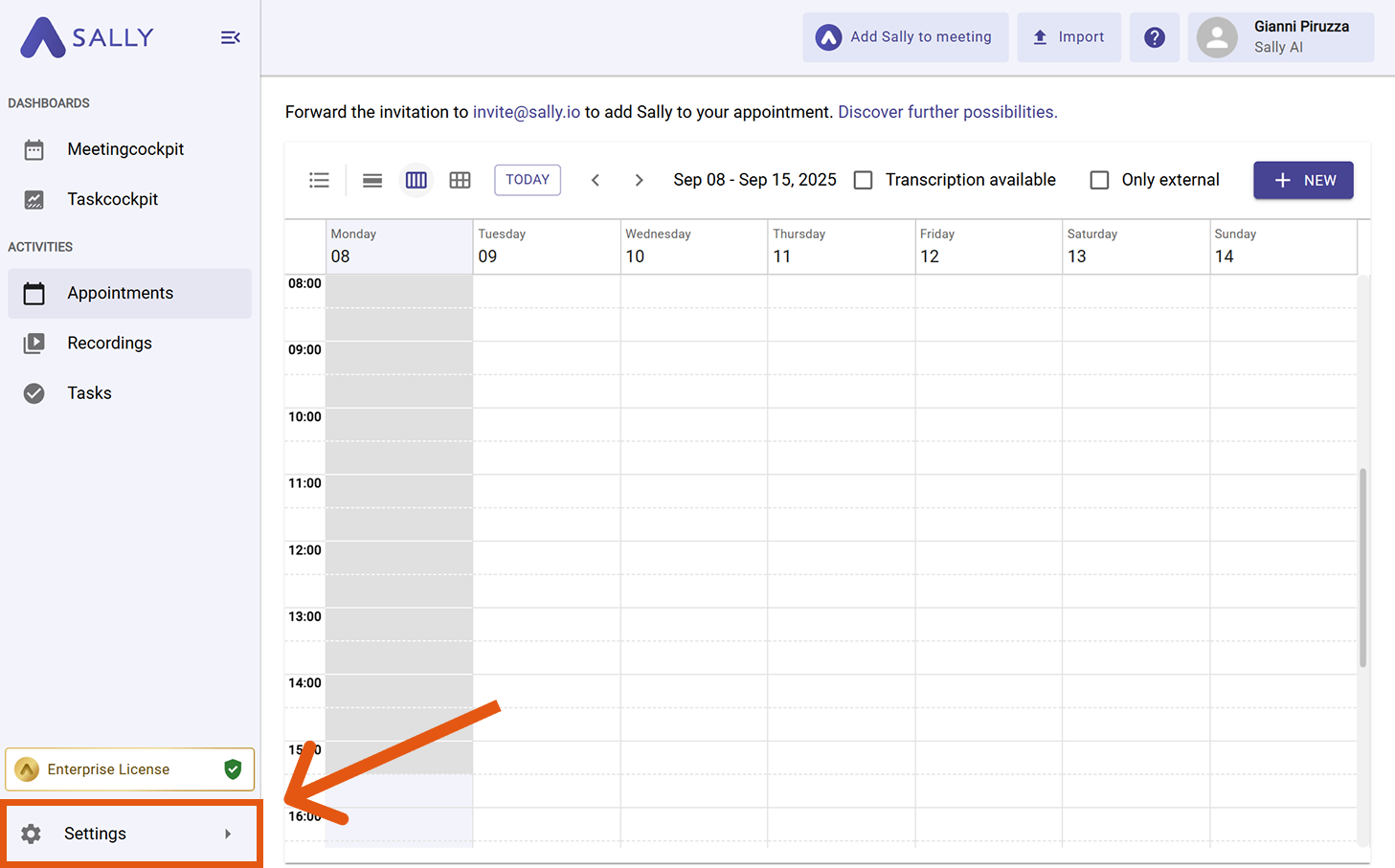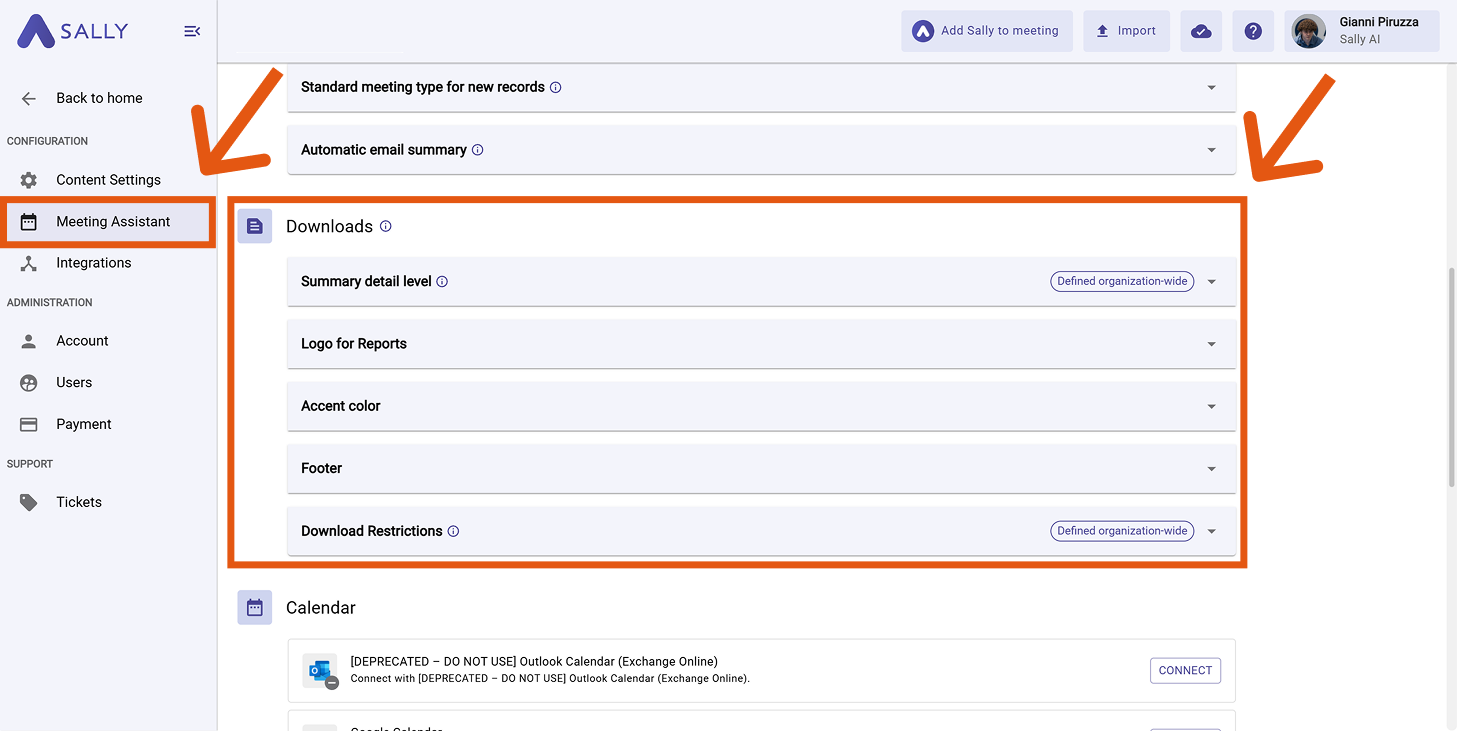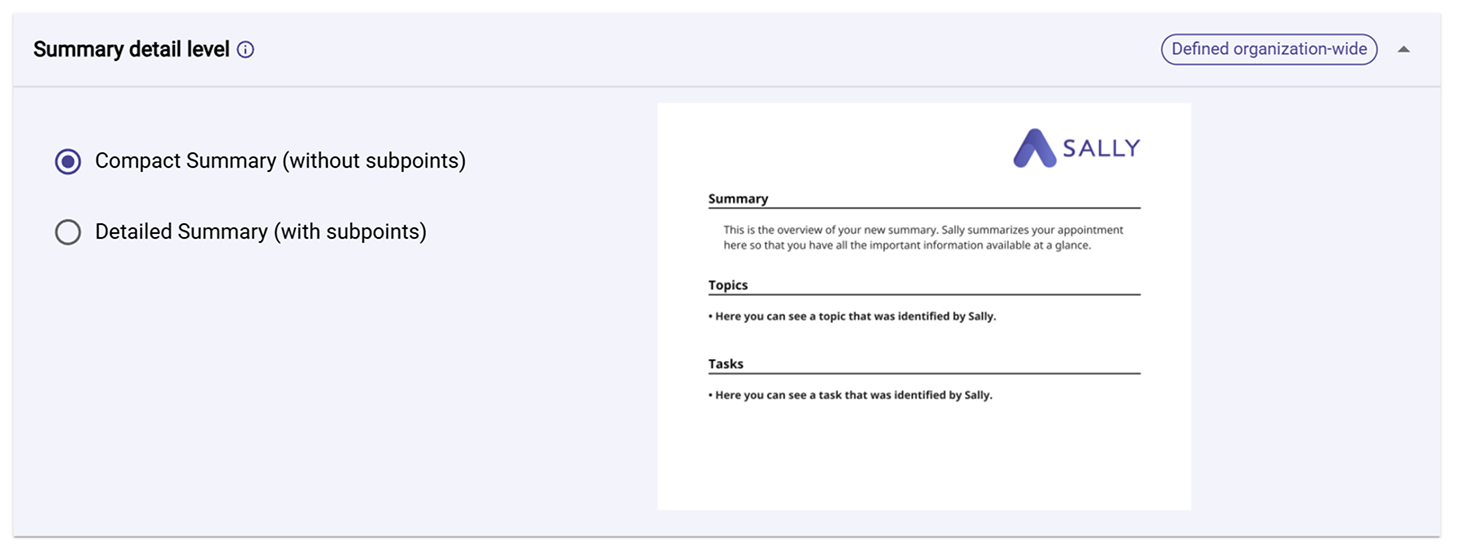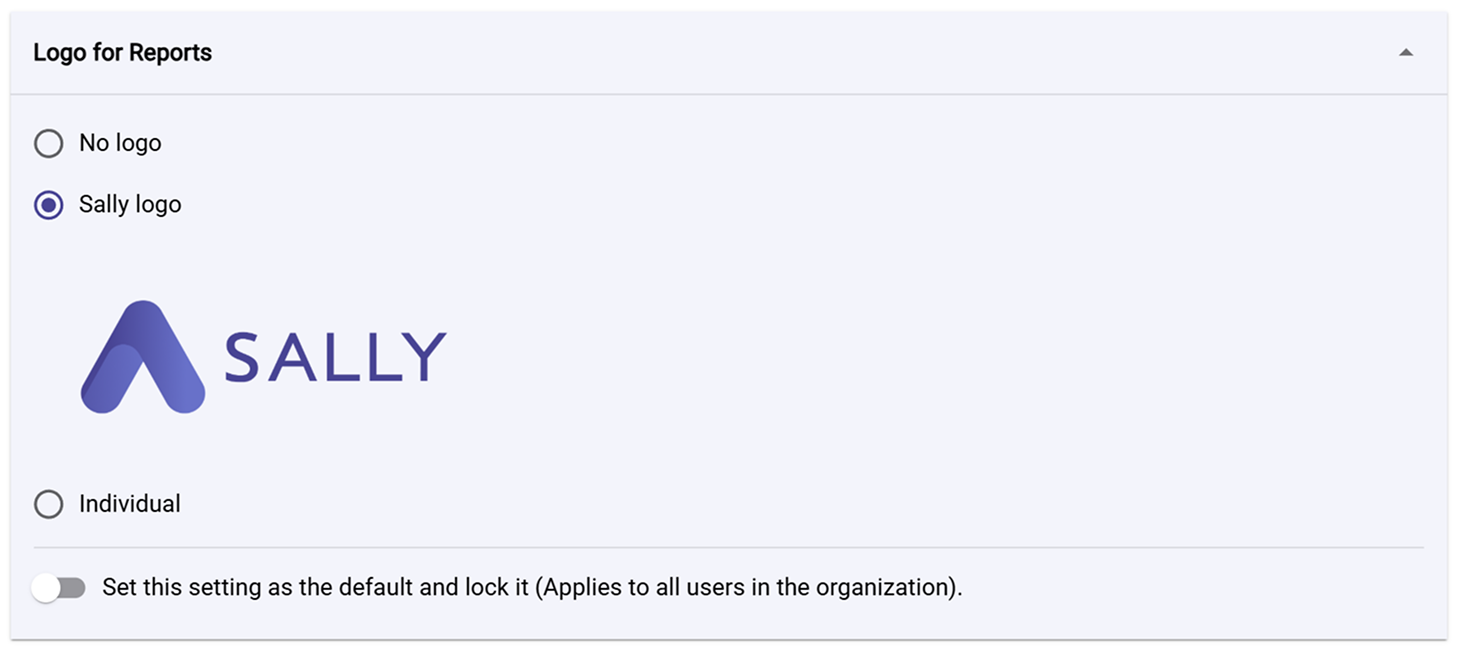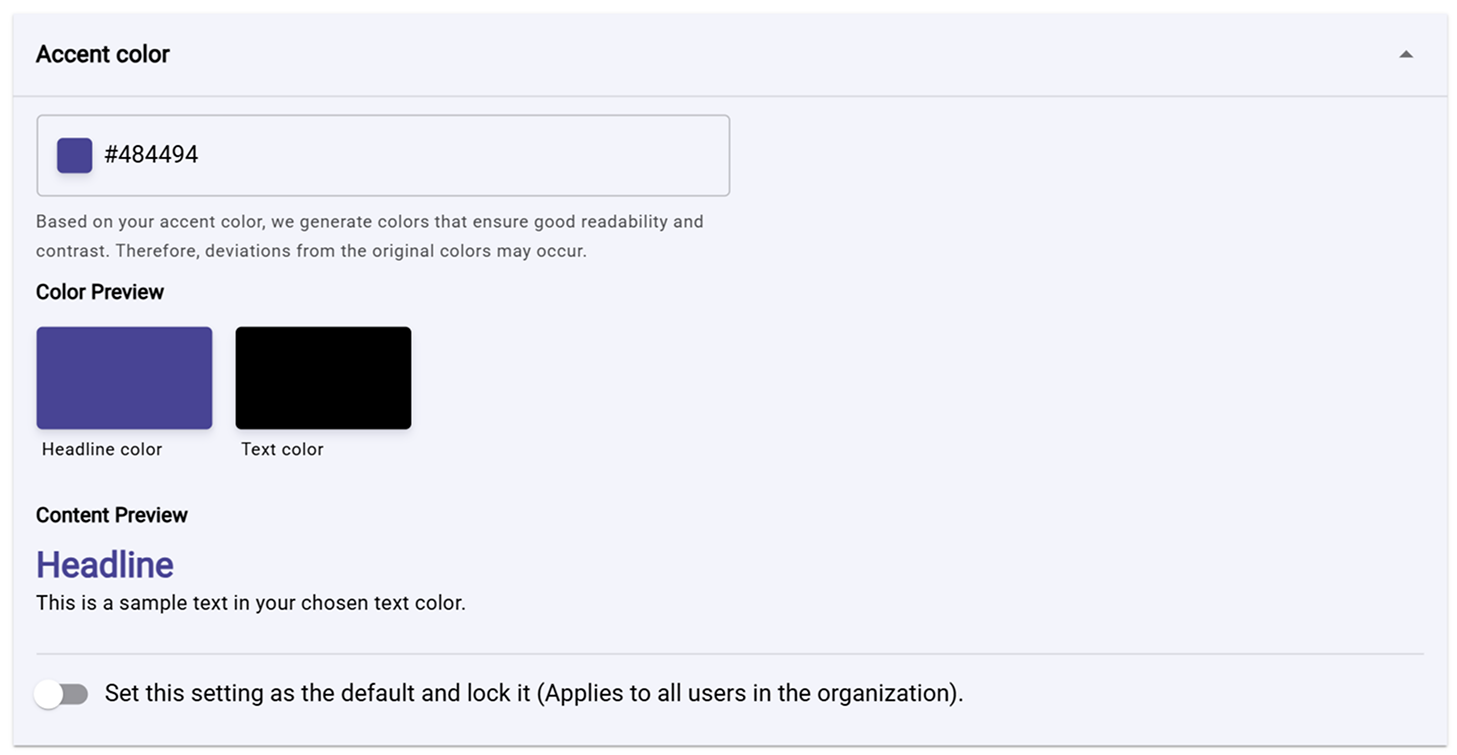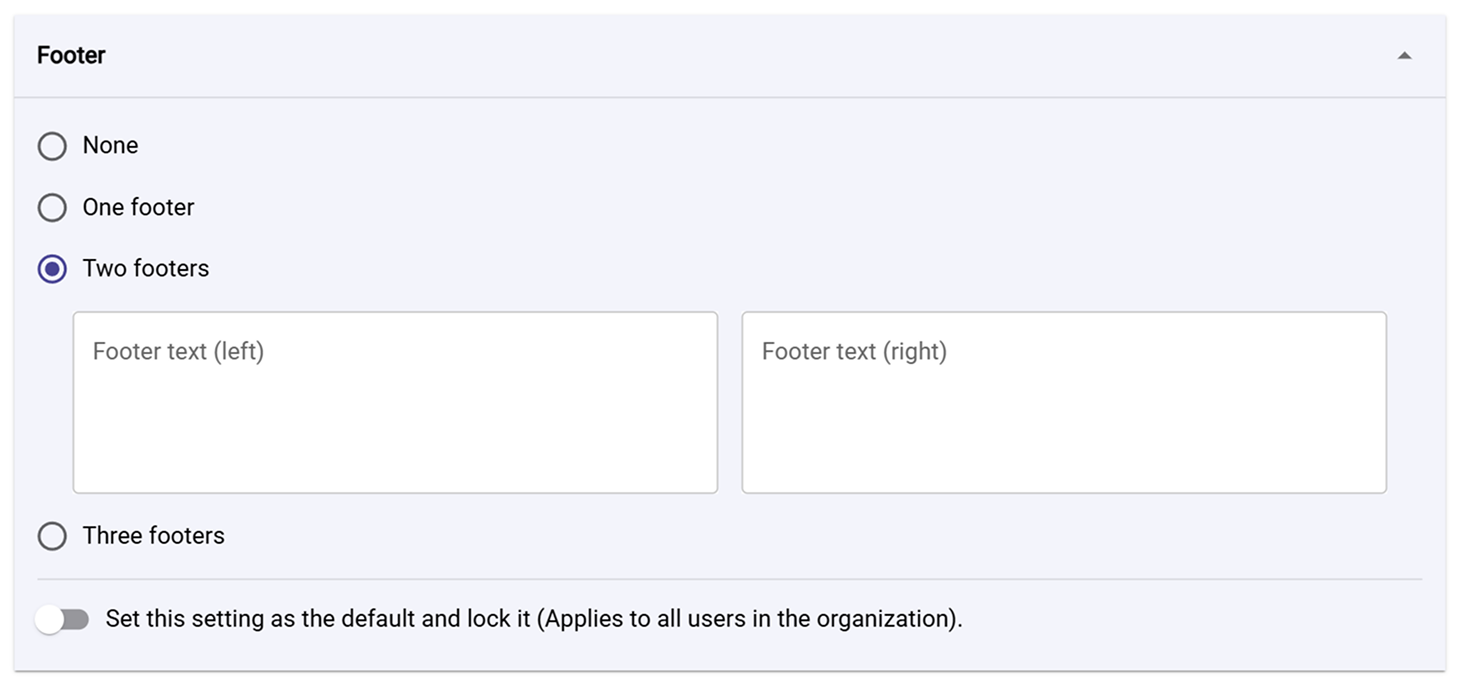Document Settings
Before you download a transcript or summary as a document, you can adjust the document settings to control its design and layout.
These settings let you define how your meeting reports look - from colors and logos to footers and download restrictions - so your exported files always match your company’s style.
Quick Navigation
- What a document looks like
- How to access document settings
- Overview of all configuration options
3.1. Summary Detail Level
3.2. Logo for Reports
3.3. Accent Color
3.4. Footer
3.5. Download Restrictions
1. What a document looks like
Documents in Sally are used to store, share, or send meeting summaries and transcripts in a clean, professional layout.
They include key meeting information such as the title, date, attendees, location, and summary.
Example of a Sally meeting report
By adjusting your document settings, you can:
- Add your company logo for consistent branding
- Use your own accent color for visual alignment
- Include a footer with company details or disclaimers
- Restrict certain downloads to maintain privacy and compliance
These options ensure that every report you generate looks polished and aligned with your organization’s standards.
2. How to access document settings
To open the document settings:
- Go to Settings in the main navigation bar on the left.
Go to Settings → Meeting Assistant → Downloads
- Select Meeting Assistant under Configuration.
- Scroll down to the Downloads section.
Choose which logo appears in your reports
Here, you’ll find all available customization options such as logo, color, footer, and download permissions.
To modify a specific setting, simply expand the corresponding tab.
In the following sections, we’ll walk you through all available document settings, so you can decide which adjustments make the most sense for your team.
3. Overview of all configuration options
3.1. Summary Detail Level
Sally allows you to control the level of detail in your downloaded summaries. This setting controls whether you prefer a short, high-level overview or a more descriptive summary.
Choose between compact and detailed summaries
You can choose between:
-
Compact Summary (without subpoints): Sally includes only the main sections of your summary – clean, short, and easy to scan.
-
Detailed Summary (with subpoints): Each summary section is expanded with brief descriptions. Ideal if you want more context without reading the full transcript.
3.2. Logo for Reports
You can choose which logo appears on your exported reports:
Define your headline and text colors
- No logo – The document will not display any logo.
- Sally logo – Use the default Sally logo.
- Individual – Upload your organization’s own logo.
If you want this logo setting to apply to all users in your organization, activate “Set this setting as the default and lock it.”
3.3. Accent Color
Select your desired accent color to define the look of headlines and other visual highlights in the document.
Add one, two, or three footers to your reports
- Match your company’s brand color
- Use neutral tones for formal client-facing reports
A live preview shows how your color choice affects headline and text colors.
If you want this accent color setting to apply to all users in your organization, activate “Set this setting as the default and lock it.”
3.4. Footer
Add one, two, or three footers at the bottom of your reports.
Each field can contain any text - such as contact information, company name, or legal disclaimers.
Control what users can download
Options:
- None – No footer
- One footer – A single footer line
- Two footers – Left and right footer fields
- Three footers – Add more detailed information
If you want this footer setting to apply to all users in your organization, activate “Set this setting as the default and lock it.”
3.5. Download Restrictions
Administrators can restrict which file types users are allowed to download - helping protect sensitive information.
Final example of a customized Sally document
Available options:
-
Prevent downloading of transcripts
Users won’t be able to export or save written transcripts of meetings as files. This is useful when internal discussions should stay within Sally. -
Prevent downloading of summaries
Blocks users from downloading Sally’s automatically generated summaries. This ensures that sensitive insights remain in the system and aren’t shared externally. -
Prevent downloading of video files
Disables the option to download meeting video recordings. Videos can still be viewed within Sally but not exported to local storage. -
Prevent downloading of audio files
Stops users from saving the raw audio recordings of meetings. This helps reduce data exposure and comply with stricter privacy rules.
Restrictions are defined organization-wide, meaning all users follow the same rules.
